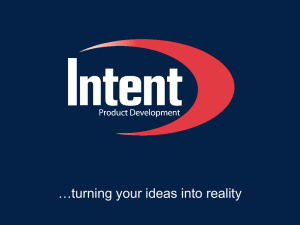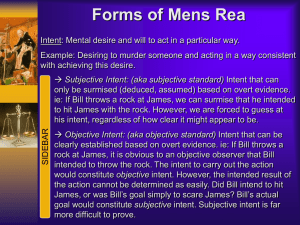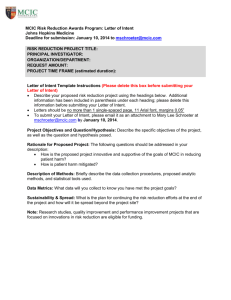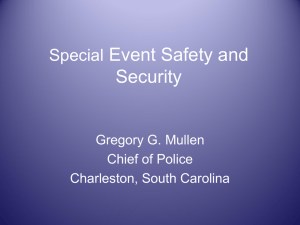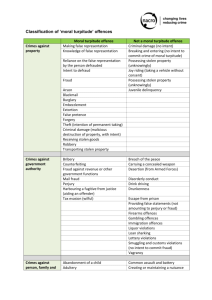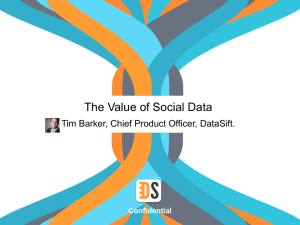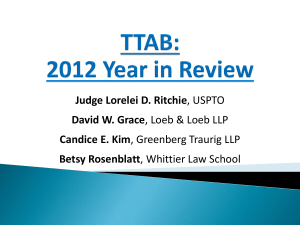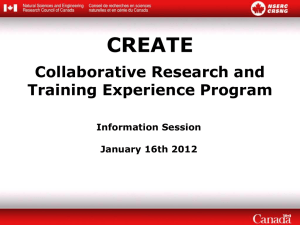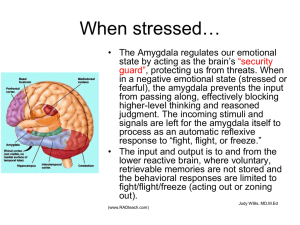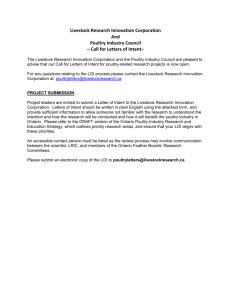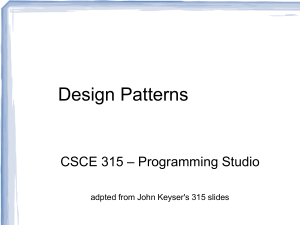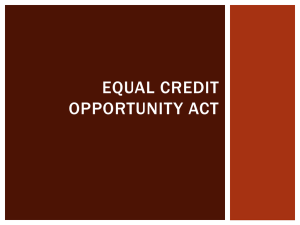Strategic Intent
advertisement
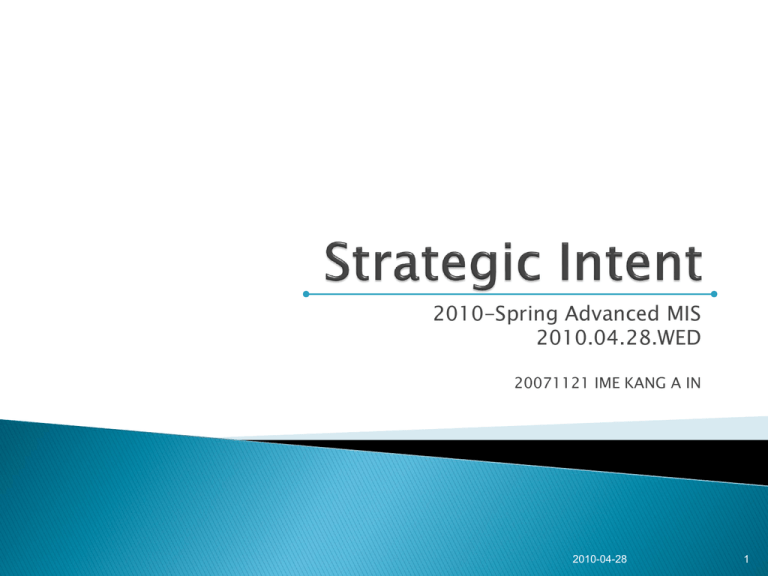
2010-Spring Advanced MIS 2010.04.28.WED 20071121 IME KANG A IN 2010-04-28 1 Introduced by Gary Hamel and C.K. Prahalad “Strategic Intent” published in Harvard Business Review (1989) 2010-04-28 2 Strategic Intent ◦ A long-term goal that is ambitious, builds upon and stretches firm’s core competencies, and draws from all levels of the organization. Typically looks 10-20 years ahead, establishes clear milestones Firm should identify resources and capabilities needed to close gap between strategic intent and current position. ▲Identifying the Resource and Capability Gap Should not be a surprise – rather should state what is already known Inspire employees, customers, suppliers and public Guide decision making Be expressed in few words Pithy and credible Publicised 2010-04-28 4 Acceptable to stakeholders Consistent with the history and culture of the enterprise Must stretch beyond its present aspirations and practices Will tend to be based on inspired guess of the future Includes both vision and goals Influences on Strategic Intent Context Inspired guesses of the future Stakeholder Groups History & Culture Ownership Structure Corporate Values Strategic Intent Goals Survival Profit Growth Shareholder Value Leadership Vision Unique for this enterprise The Strategy Formulation Process Strategic Assessment Strategic Choice 2010-04-28 5 Influences on Strategic Intent Inspirational leaders illustrate role ◦ ◦ ◦ ◦ ◦ Highly visible Strategic intent closely related to leader Surrounded by people who agree Hence vision widely understood and accepted However, danger if vision become inappropriate 2010-04-28 6 Influences on Strategic Intent Any group with an interest in the activities and results of the enterprise i.e., Shareholders (dominant stakeholders in commercial enterprises), Customers, Managers, Staff Influence tends to vary with the levers of power they hold - shareholders tend to be the most powerful Future direction and current actions often strongly determined by the directors’ view of the response of powerful stakeholders Model for analysing stakeholder power Extent of Power High Avoid annoying Consult & Involve Least important Inform Low Low High Inclination to exercise power 2010-04-28 7 Influences on Strategic Intent Organizational History and Culture ◦ Recent events ◦ Track record ◦ Current performance ◦ Merger residues Ownership and power structure ◦ Family firms ◦ Founder(s) in residence ◦ Personal goals and agendas 2010-04-28 8 Influences on Strategic Intent Model described so far is only one view. 2 other views: ◦ Impossible for an organization to have intent e.g. Cyert & March, Simon ◦ Intent embedded in culture 2010-04-28 9 1. 2. 3. How is the idea of “strategic intent” different from models of strategy that emphasize achieving a fit between the firm’s strategies and its current strengths, weaknesses, opportunities and threats (SWOT)? Can a strategic intent be too ambitious? What do you think about the Views of Cyert & March, Simon? (Impossible for an organization to have intent ) 2010-04-28 10
